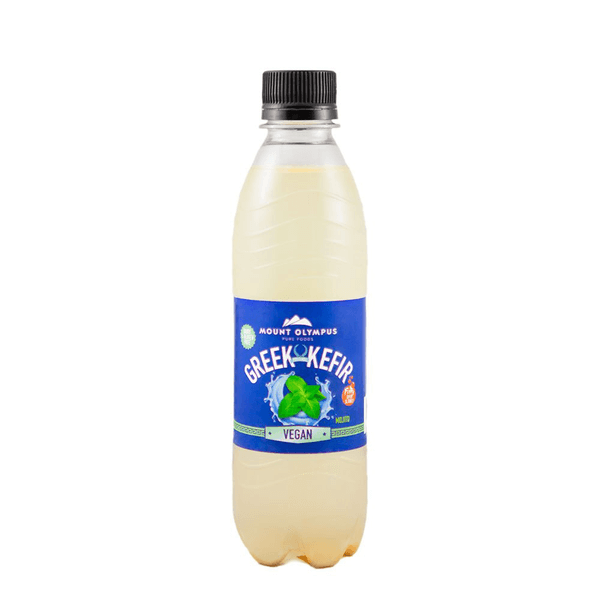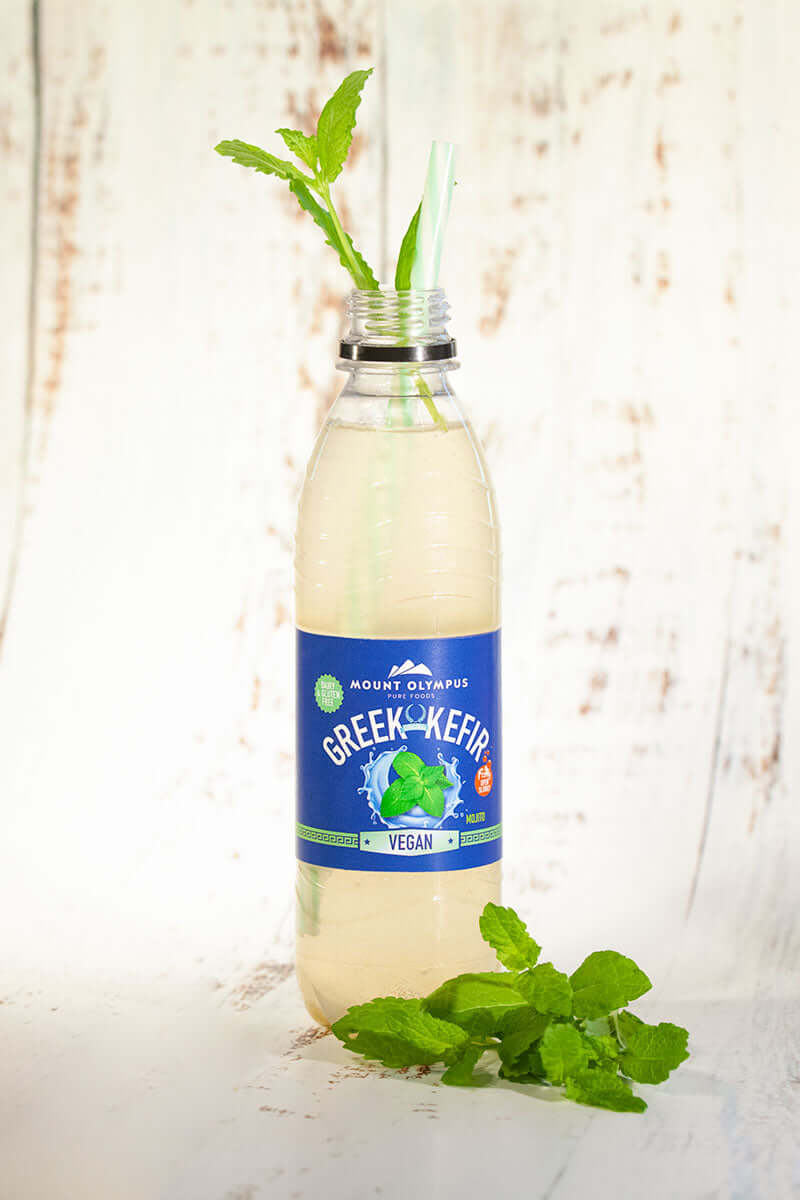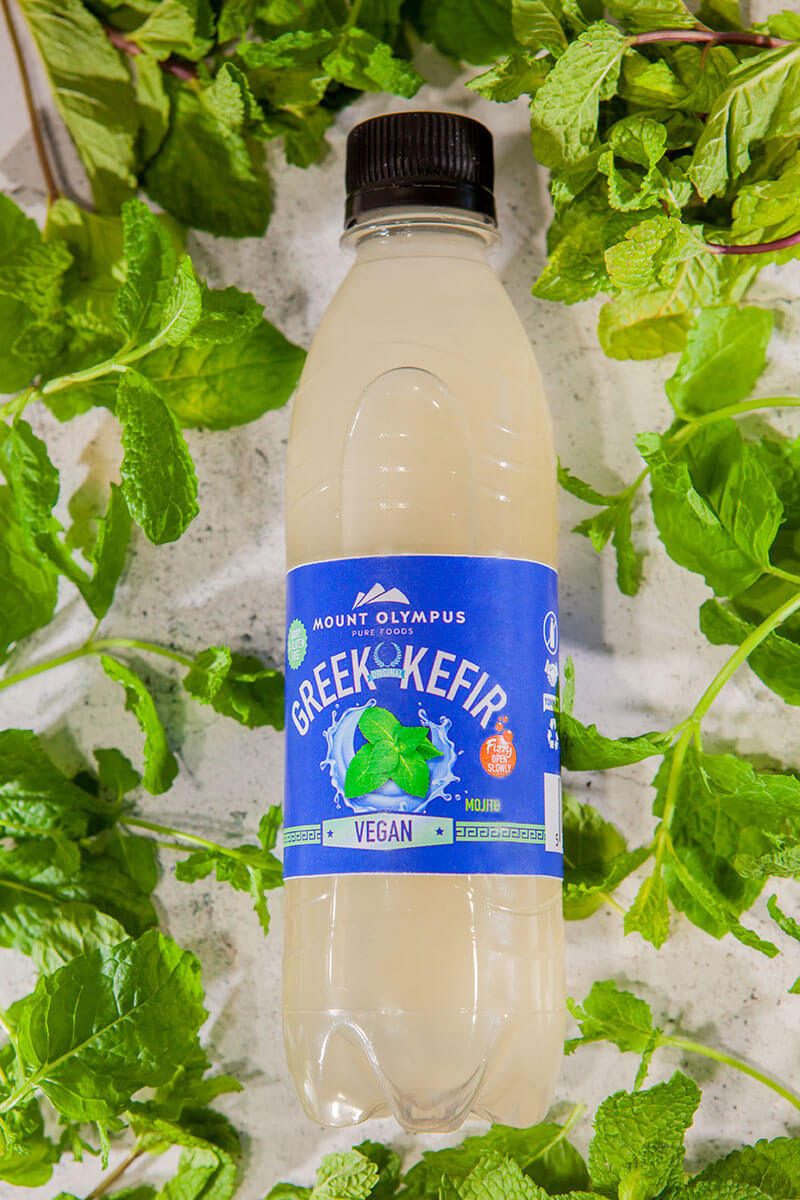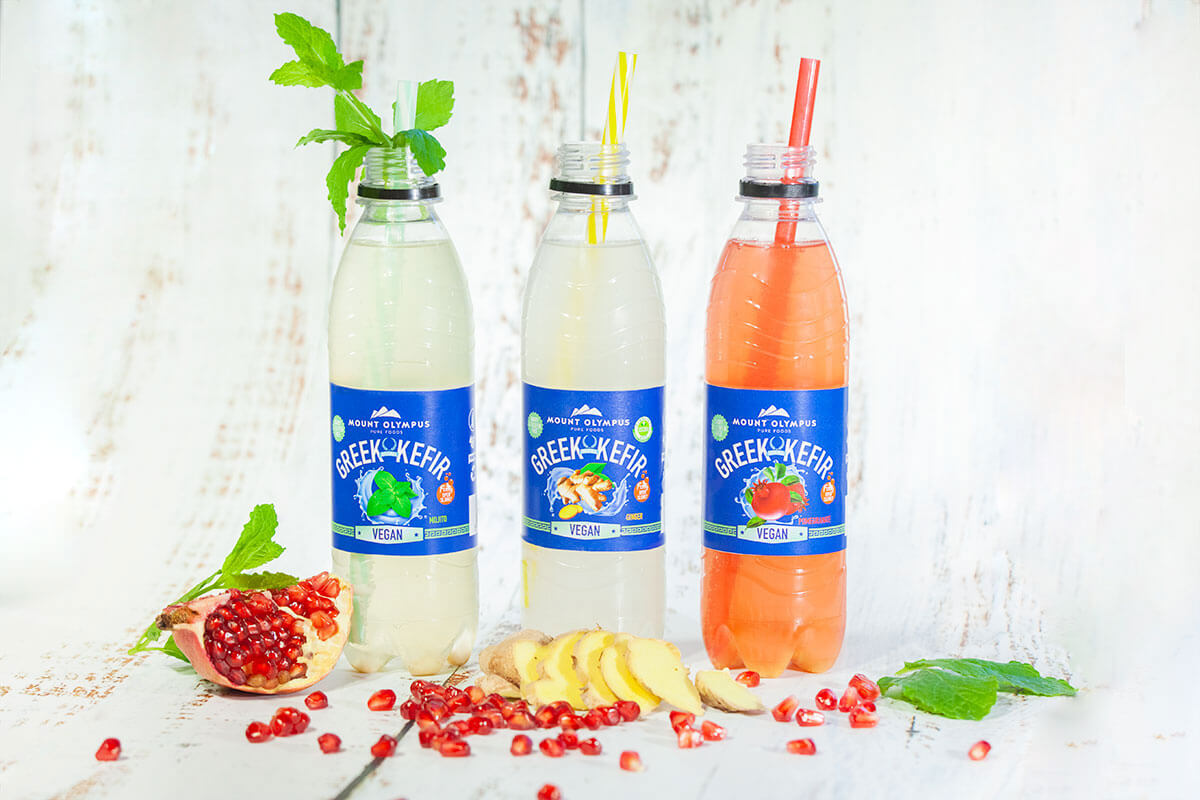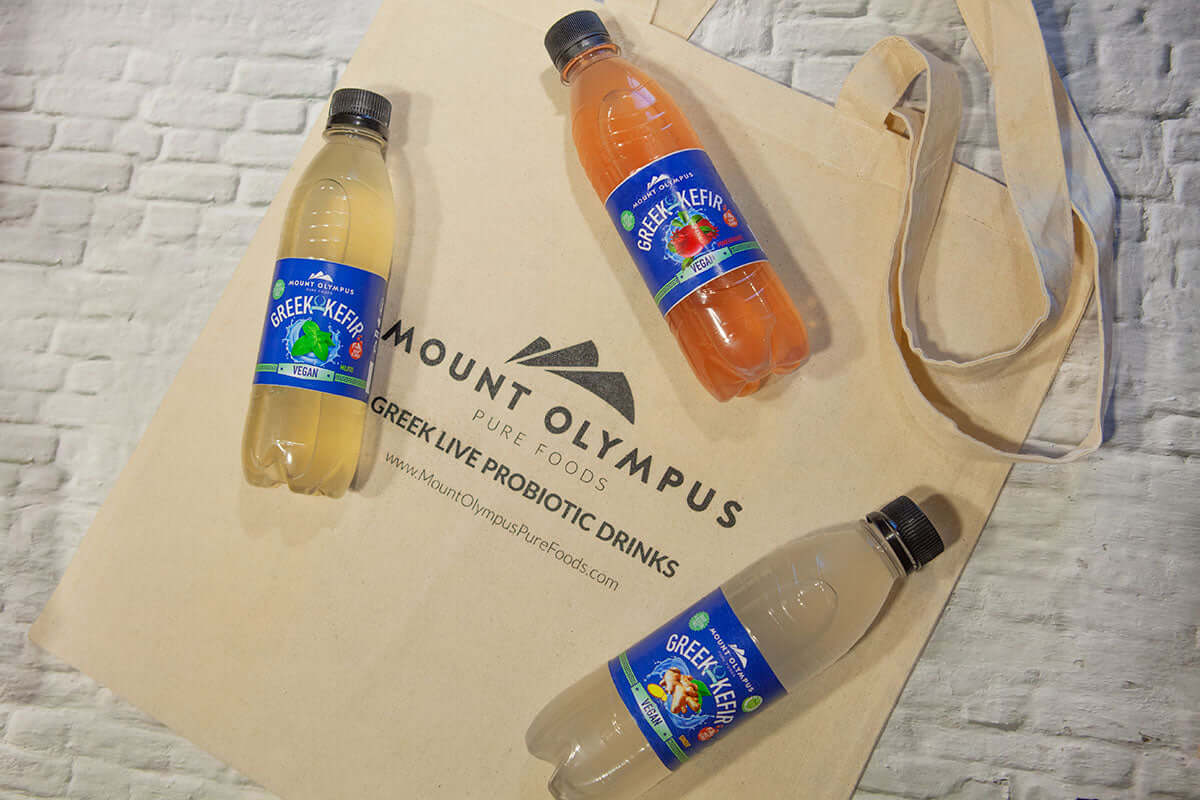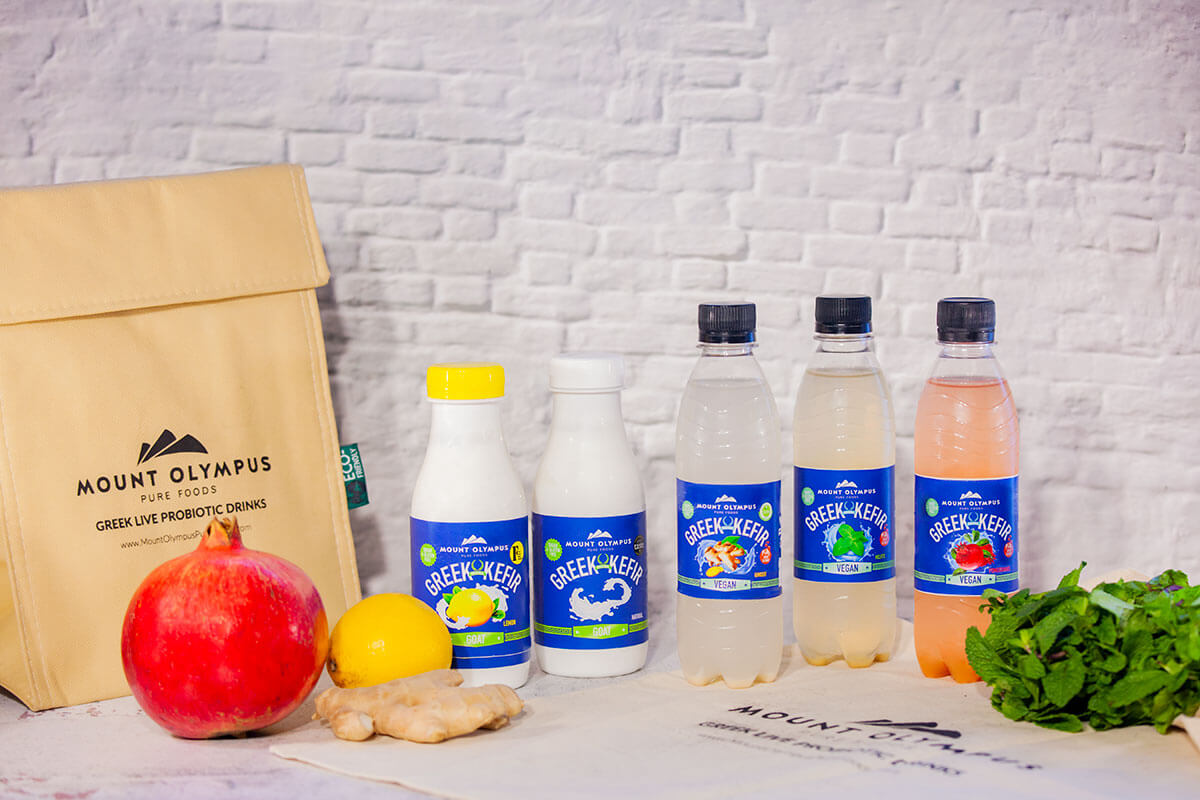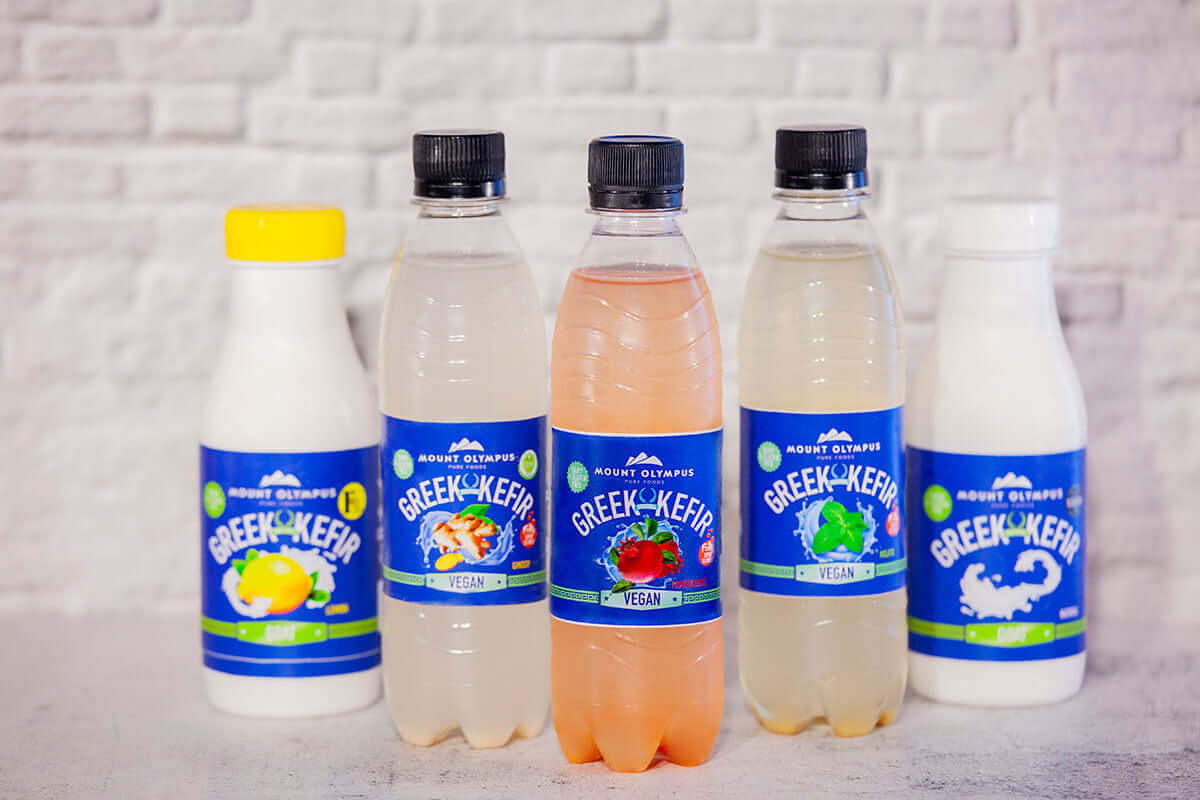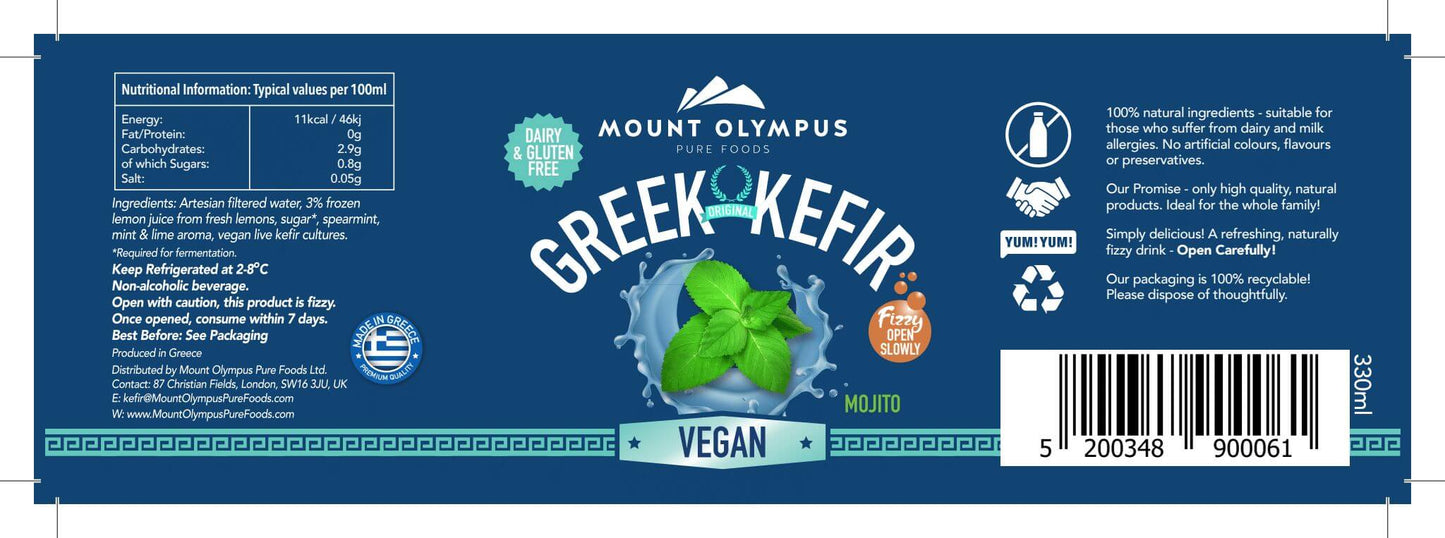From supplying a vast quantity of antioxidants to doing the planet some good, plant-based diets have many advantages. Whether you are just starting out or have been in favour of a vegan eating plan for some time, including some of our water kefir in your daily routine can be advantageous.
How is our water kefir different:
- It’s traditionally fermented for the highest quality
- Batch tested to ensure billions of beneficial bacteria in each bottle
- Fermented using water kefir grains which are non-dairy based and vegan-friendly
- Made with pure, mineral-rich artisan water from Greece
Here are some of wellbeing supporting benefits of water kefir:
Digestion
The gut is home to a collection of organisms mainly made up of beneficial bacteria that are essential for good health (1). They assist with digestion and even produce some nutrients for us, namely biotin, Vitamin K and short chain fatty acids that support both digestive and overall wellbeing (2).
These beneficial organisms play an especially important part during the consumption of a vegan diet. Plant-based foods are generally harder to digest which is when the gut bacteria step in. They fermented otherwise undigestible fibres to produce extra energy and nutrients (2).
Studies on the Hadza hunter-gatherer tribe, who aren’t vegan but consume a large proportion of their daily food intake from high-fibre foraged plants, noted the presence of a diverse range and large quantity of beneficial gut bacteria which assist the Hadza in deriving more from what they eat (3). In a nutshell, you aren’t strictly what you eat, you are what you absorb and beneficial bacteria may allow you to make and absorb more of the good stuff.
Stress, alcohol, a high sugar diet, pollutants and medications can all deplete the variety and quantity of beneficial bacteria in the gut so it makes sense to top up their numbers at regular intervals (4,5).
Fortunately, studies indicate that regular kefir consumption can boost the number of beneficial bacteria (6). We recommend starting your day on half a bottle of our vegan-friendly water kefir.
B vitamins
B vitamins are a group of nutrients which are essential for cellular function, energy metabolism and cardiovascular health amongst many others (7,8). Although some plant based foods are sources of B vitamins, vitamin B12 is predominantly of animal origin. Without B12, fatigue, joint pain, poor memory and trouble concentrating are common symptoms.
Here is the good part: fermented foods such as kefir are a source of vitamin B12 and other B vitamins thanks to the presence of the lactic acid bacteria Lactobacillus reuteri (9).
The concentrations of B12 aren’t enough to completely forgo supplementation but it does provide further justification to drink that daily bottle of water kefir.
Immunity
Gut bacteria affect the immune system from the day we are born and carry on enhancing it well into adulthood (1). Infections such as the common cold, urinary tract infections, thrush and even food poisoning are more common if there is a lack of beneficial microbes in the gut (10, 11, 12, 13).
Kefir consumption can boost the gut microbiome, offering an important immune supporting advantage (6). We recommend consuming water kefir every day for at least 30 days for immunity.
Antibiotics used to treat infections can wipe out beneficial bacteria alongside the disease causing pathogens (14). Luckily, kefir consumption can replace some of the good bacteria and even prevent reinfection (6). When it comes to the post-antibiotic period, the longer and more regularly you can consume kefir, the better. It takes a while to replenish the gut microbiome so we recommend a daily dose of kefir for at least 2-3 months following a course of antibiotics.
Disclaimer:
This content is not intended to diagnose or treat any diseases. It is intended to be provided for informational, educational, and self-empowerment purposes ONLY. Please consult with your wellness team, and then make your own well-informed decisions based upon what is best for your unique genetics, culture, conditions, and stage of life.
References
- Turnbaugh PJ, Ley RE, Hamady M, Fraser-Liggett C, Knight R, Gordon JI (2013) The human microbiome project: exploring the microbial part of ourselves in a changing world. Nature, 449: 804-810.
- Kau AL, Ahern PP, Griffin NW, Goodman AL, Gordon JI (2011) Human nutrition, the gut microbiome, and immune system: envisioning the future. Nature, 474: 327-336.
- Schnorr SL, Candela M, Rampelli S, Centanni M, Consolandi C, Basaglia G, Turroni S, Biagi E, Peano C, Severgnini M, Fiori J, Gotti R, De Bellis G, Luiselli D, Brigidi P, Mabulla A, Marlowe F, Henry AG, Crittenden AN (2014) Gut microbiome of the Hadza hunter-gatherers. Nature Communications, doi:10.1038/ncomms4654.
- Engen PA, Green SJ, Voigt RM, Forsyth CB, Keshavarzian A (2015) The gastrointestinal microbiome: alcohol effects on the composition of intestinal Alcohol Research, 37: 223-236.
- Konturek PC, Brzozowski T, Konturek SJ (2011) Stress and the gut: pathophysiology, clinical consequences, diagnostic approach and treatment options. Journal of Physiology and Pharmacology, 62: 591-599.
- Bourse BCT, Willing BP, Cotter PD (2016) The microbiota and health promoting characteristics of the fermented beverage kefir. Frontiers in Microbiology, doi:10.3389/fmicb.2016.00647.
- Depeint F, Bruce WR, Shangari N, Mehta R, O’Brien PJ (2006) Mitochondrial function and toxicity: role of the B vitamin family on mitochondrial energy metabolism. Chemico-Biological Interactions, 163: 94-112.
- Debreceni B, Debreceni L (2014) The role of homocysteine-lowering B-vitamins in the primary prevention of cardiovascular disease. Cardiovascular Therapeutics, 32: 130-138.
- Santos F, Wegkamp A, de Vos WM, Smid EJ, Hugenholtz J (2008) High-level folate production in fermented foods by the B12 producer Lactobacillus reuteri JCM1112. Applied and Environmental Microbiology, doi: 10.1128/AEM.02719-07.
- Allan GM, Arroll B (2014) Prevention and treatment of the common cold: making sense of the evidence. Canadian Medical Association Journal, 186: 190-199.
- Sobel JD (2016) Recurrent vulvovaginal candidiasis. American Journal of Obstetrics & Gynecology, 214: 15-21.
- Totsika M, Moriel DG, Idris A, Rogers BA, Wurpel DJ, Phan MD, Paterson DL, Schembri MA (2012) Uropathogenic Escherichia coli mediated urinary tract infection. Current Drug Targets, 13: 1386-1399.
- Josephs-Spaulding J, Beeler E, Singh OV (2016) Human microbiome versus food-borne pathogens: friend or foe. Applied Microbiology and Biotechnology, 100: 4845-4863.
- Jernberg C, Lo S, Edlund C, Jansson JK (2010) Long-term impacts of antibiotic exposure on the human intestinal microbiota. Microbiology, 156: 3216-3223.



